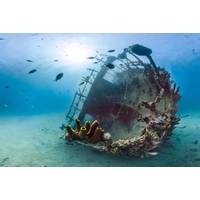
BOEM Announces New Rules for Protection of Shipwrecks
The US Bureau of Ocean Energy Management (BOEM) has finalized new regulations to better protect shipwrecks and other cultural resources on the seabed from potential harm due to offshore oil and gas activities.The final rule requires lessees and operators to submit an archaeological report with any exploration or development plan they submit to BOEM for proposed activities on the U.S. Outer Continental Shelf (OCS). The report must detail procedures for reporting the discovery of possible archaeological resources and how operations will avoid or minimize harm if archaeological resources are present.
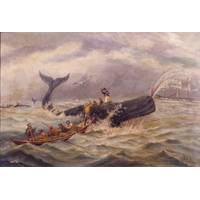
Two Century Old Shipwrecked Whaling Ship Discovered in GOM
and viewed briefly by an autonomous vehicle in 2017, but never fully examined. Armed with extensive research on Industry and the video from the ROV, the team of shoreside scientists led by James Delgado, Ph.D., senior vice president of SEARCH Inc.; Scott Sorset, marine archeologist for the U.S. Bureau of Ocean Energy Management (BOEM); and Michael Brennan, Ph.D., also of SEARCH Inc., have now confirmed that the wreck is most likely the brig Industry.The whaling brig was built in 1815 in Westport, Massachusetts, and hunted whales across the Atlantic Ocean, the Caribbean and the Gulf of Mexico for
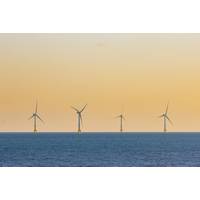
Biden Administration Aims for US Leadership in Offshore Wind -Official
- part of his sweeping plan to fight climate change by decarbonizing the economy.“The distinction now is that we have a president and an administration that is really harnessing this opportunity to fight climate change and to create good paying union jobs,” Amanda Lefton, director of the U.S. Bureau of Ocean Energy Management, said in an interview. “We will soon be leading in this industry.”BOEM is the division of the Interior Department in charge of offshore energy leasing.The administration’s plan this week set a goal to deploy 30 gigawatts of offshore wind energy by 2030
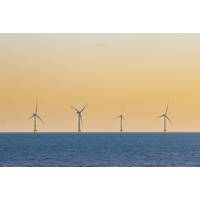
US Vineyard Wind Project Clears Key Hurdle
The Interior Department completed its final environmental review of what would the first commercial scale U.S. offshore wind farm, it announced on Monday, clearing a key hurdle needed to permit the project off Massachusetts.The U.S. Bureau of Ocean Energy Management (BOEM)’s final environmental impact statement for the Vineyard Wind project, an 800-megawatt wind energy project will be published in the federal register by Friday, kicking off a final 30-day comment period before it issues its record of decision of whether it will approve the project.The project is a key step for the Biden-Harris
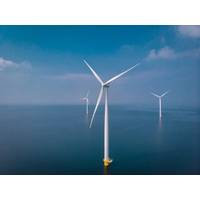
First Major US Offshore Wind Farm Reaches Permitting Milestone
environmental study that considers the project's impacts on fisheries and navigation.Publication of the document marks a step forward for the Vineyard Wind project, which has experienced delays over concerns that its wind turbines will hurt commercial fishing. The supplemental review by the U.S. Bureau of Ocean Energy Management, announced last year, also considered the impacts of many such projects due to the growing number of offshore wind farms planned for the East Coast.The Trump administration has sought to fire up development of the nascent offshore wind industry as part of its policy to

Op/Ed: A Nail in the Coffin for US Offshore Exploration
National Ocean Industries Association (NOIA) president Randall Luthi issued a statement slamming the U.S. Bureau of Ocean Energy Management’s (BOEM) denial of seismic survey permits for the Atlantic Outer Continental Shelf (OCS). In yet another ‘Black Friday’ announcement targeting the offshore oil and natural gas industry, the BOEM blanket denial of seismic survey permits is an unsurprising attempt to put another nail in the coffin of sensible energy exploration in the Atlantic. Not only does this decision conflict with BOEM’s own scientific conclusion that
US Denies Atlantic Seismic G&G Permits
The U.S. Bureau of Ocean Energy Management (BOEM) has denied six pending geophysical and geological (G&G) permit applications to conduct airgun seismic surveys in the Mid- and South Atlantic Planning Areas of the Atlantic Ocean. In announcing its decision BOEM cited a number of factors, including a diminished need for additional seismic survey information because the Atlantic Program Area has been removed from the 2017-2022 Outer Continental Shelf Oil and Gas Leasing Program. “In the present circumstances and guided by an abundance of caution, we believe
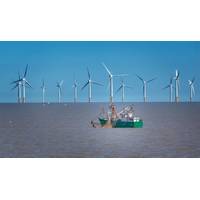
US Offshore Wind Faces Pushback from Fishing Groups
The auction for the rights to the wind farm off the coast of New York has encountered pushback from fishing groups concerned about the impact a large-scale wind project will have on the access to prime fishing areas. The U.S. Bureau of Ocean Energy Management (BOEM) was set to administer the lease sale on December 15, when a petition to delay the auction was presented to the federal court. The U.S Bureau of Ocean Energy and Management (BOEM) requires an extensive stakeholder marine spatial planning process that de-conflicts the wind energy area prior to the Point of Sale Notice (PSN). The
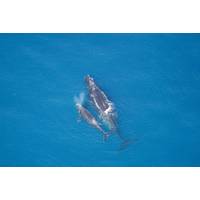
US Drafts Rules to Reduce Survey Impact on Marine Life
BOEM announces Draft Programmatic Environmental Impact Statement for Gulf of Mexico geological and geophysical surveys, recommends strongest practicable safeguards to eliminate or reduce impacts to marine mammals and coastal environments The U.S. Bureau of Ocean Energy Management (BOEM) today announced the availability of a Draft Programmatic Environmental Impact Statement (PEIS) that recommends strong measures to protect marine mammals and coastal environments in the Gulf of Mexico from the potential impacts of geological and geophysical (G&G) surveys for oil, gas and minerals. Co
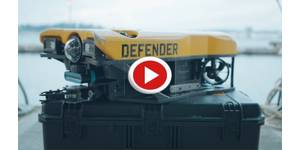

 February 2025
February 2025





